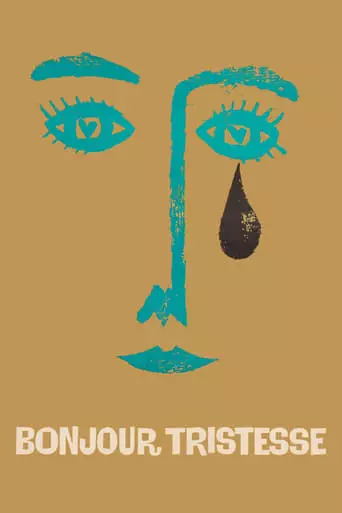
Bonjour Tristesse (1958) Watch Online Free
Cecile is a decadent young girl who lives with her rich playboy father, Raymond. When Anne, Raymond’s old love interest, comes to Raymond’s villa, Cecile is afraid for her way of life.
Bonjour Tristesse is a 1958 film directed by Otto Preminger, adapted from Françoise Sagan’s 1954 novel. The narrative unfolds through the perspective of Cécile (Jean Seberg), a 17-year-old girl reflecting on a transformative summer spent on the French Riviera with her widowed father, Raymond (David Niven). Their carefree, hedonistic lifestyle is disrupted when Anne (Deborah Kerr), a sophisticated fashion designer and friend of Raymond’s late wife, enters their lives. Anne’s presence threatens the delicate balance of their relationship, leading to unforeseen consequences.
The film employs a non-linear storytelling technique, juxtaposing the present with flashbacks to the previous summer. This structure effectively conveys the passage of time and the evolution of Cécile’s character. The use of black-and-white sequences for the present-day scenes contrasts with the vibrant color of the flashbacks, symbolizing the shift from innocence to the complexities of adult relationships.
The film explores the tension between youthful freedom and the responsibilities of adulthood. Cécile’s naive manipulation of events to maintain her idyllic lifestyle contrasts sharply with Anne’s mature approach to relationships and commitment. This dichotomy highlights the challenges of transitioning from adolescence to adulthood.
Raymond’s indulgent parenting style significantly shapes Cécile’s worldview. His lack of discipline and moral guidance leads her to adopt a carefree, self-centered attitude. The narrative examines how parental behavior can profoundly influence a child’s development and ethical compass.
Cécile’s jealousy of Anne’s potential role in her father’s life underscores themes of possessiveness and insecurity. Her actions to disrupt their relationship stem from a fear of losing her father’s affection, reflecting the complexities of familial bonds.
The film critiques the notion of a perfect, carefree existence. The initial portrayal of the Riviera as a paradise is gradually revealed to be a facade, exposing the underlying emotional turmoil and moral ambiguities of the characters.
Impact of the Movie
Upon its release, Bonjour Tristesse garnered mixed reviews. Critics praised its cinematography and the performances of the lead actors, particularly Jean Seberg. However, some criticized its pacing and the adaptation’s fidelity to the source material. Over time, the film has been reassessed and is now appreciated for its exploration of complex themes and its influence on subsequent cinematic works.
Watching Bonjour Tristesse is an emotionally engaging experience that leaves a lasting impression. The film’s exploration of complex themes such as the transition from adolescence to adulthood, the impact of parental influence, and the intricacies of human relationships prompts deep reflection. Viewers may find themselves contemplating the characters’ motivations and the moral dilemmas they face, leading to a sense of introspection.
The film’s non-linear narrative structure keeps the audience engaged, as the interweaving of past and present events gradually unveils the characters’ complexities and the evolution of their relationships. This storytelling technique adds depth to the narrative, allowing viewers to appreciate the intricacies of the plot and the development of the characters.
The stunning cinematography, capturing the beauty of the French Riviera with vibrant colors during the flashbacks and contrasting black-and-white sequences for the present-day scenes, enhances the emotional impact of the film. The visual style not only serves as a symbolic representation of the narrative’s emotional shifts but also immerses the audience in the film’s atmosphere, making the viewing experience more immersive and memorable.
The strong performances by the lead actors contribute significantly to the film’s emotional depth. Jean Seberg’s portrayal of Cécile effectively conveys the character’s youthful exuberance and underlying complexity, while Deborah Kerr’s portrayal of Anne adds depth to the narrative. David Niven brings charm and subtlety to his role as Raymond, contributing to the film’s overall impact. These performances evoke empathy and understanding, allowing viewers to connect with the characters on a deeper level.
Upon reflection, viewers may feel a sense of melancholy and contemplation, as the film’s exploration of the fragility of human relationships and the consequences of one’s actions resonates deeply. The narrative’s emotional depth and the characters’ complexities may lead to a profound appreciation for the film’s artistic achievements and its exploration of timeless themes.
In conclusion, Bonjour Tristesse offers a rich and emotionally resonant viewing experience. Its exploration of complex themes, stunning cinematography, and strong performances by the lead actors contribute to its status as a timeless classic. Watching the film prompts introspection and leaves a lasting impression, making it a worthwhile addition to any cinephile’s collection.
